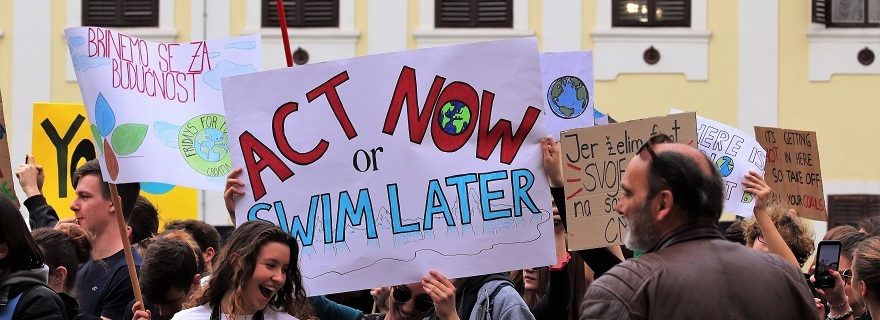Action, leadership or greenwashing? Local government and the climate emergency in the UK
More than a year on from the first climate emergency declarations, have local governments responded to this call-to-arms, or is there a long journey ahead on the path to action?
As we welcome in a new decade, climate change seems to be climbing up on the global agenda. The devastating wildfires that ravaged Australia have certainly focused international attention on the issue. In the UK, with the overwhelming result of the 2019 general election, the political paralysis of Brexit seems to be lifting. Leaving the EU raises a number of questions about the future of regulations in the UK, particularly concerning the environment. Local authorities across the country have tried to force this issue by declaring climate emergencies. But has this novel phenomenon encouraged urgent responsive action? And what role can cities play in tackling this global problem?
More than a year has passed since the UK’s first declaration of this kind which was made by Bristol City Council in November 2018. Since then, over 250 local authorities have followed suit, as has Westminster. Seldom few of these declarations, however, present any kind of binding requirements to act. This had led to some accusations of greenwashing with claims that the declarations are there merely to mute discontent with the current inability to tackle the climate crisis. In her 2013 book entitled Anti Crisis, Janet Rotiman suggests that crisis claims are discursive tools; they are used for political means and by no means guarantee corrective action. In the context of the climate, where the issue presented is incredibly multifaceted, diffuse and ambiguous, it is even more essential to call the motives of politicians into question as the consequences of their action – or lack of it – will not be clear until a number of years down the line.
Determining responsive policy action within such a short timeframe is difficult; bureaucracies are slow and local governments face significant resource deficiencies which limit the pace of their response. If we look beyond common theoretical approaches to policy, however, other disciplines offer important insight into the nature of government responses to the declared climate emergencies. Social psychology’s renowned The Unresponsive Bystander, the 1970 book by Bibb Latané and John Darley, provides a simple five-step pathway towards action in an emergency.
1. The actor must notice an event
2. They must interpret this event as an emergency
3. They feel a responsibility to act
4. They know how to act
5. They decide to act and implement action
This simple framework can provide certain predictive notions about the possibility of action; the theory posits that these steps must be achieved in this order – no step can be bypassed.
The climate emergency declarations by nature are examples of an event – climate change – being noticed and subsequently interpreted as an emergency. Where the path to action begins to falter is at step three. By analysing three early adopters of this phenomenon, Bristol City Council, Trafford Council and Brighton & Hove City Council, a number of shortcomings in this regard begin to show.
The majority of declarations request their council to write to the Prime Minister in the hope of gaining extra powers or resources to deal with the crisis. This line continues throughout a variety of legislative motions put forward to these councils in the year that follows. While it must be acknowledged that UK local governments do lack substantial powers to make wholesale change, they are by no means powerless to act. Indeed, where issues are framed in terms of public health – for example, pollution in the context of air quality – motions begin to talk about ‘duties of care’ and turn to action with greater haste. Indeed it is perhaps the lack of a well-articulated direct and local threat to a council’s citizenry in the case of climate change that is a key factor in reducing accountability.
More concrete measures have been put forward, often by opposition parties, for example when discussing the Labour Party's Green New Deal. Original motions on this were largely framed as expressions of support for a national policy. In an attempt to force action, amendments were made requiring local policies to implement the framework on a local level. These were rejected by Labour councillors, emphasising a clear reluctance to take the responsibility to act on the climate at a local level. This is despite an array of opportunities for local authorities to act, with their remit covering planning rules, public transportation and waste collection.
All this begs the question as to what the role of local government is in the context of the climate emergency. There are a number of obstructions to taking action, not only their constricted means, but also a council’s perception of its responsibility and knowledge. Thus, with an apparent reluctance to shoulder this responsibility, what are cities doing to tackle climate change? Bristol's Mayor has been vocal in encouraging other local authorities to follow his city's lead in pursuing emergency declarations to pile the pressure on Westminster. However, elected mayors in the UK are few and far between, and most local governments lack a clear figurehead to front any kind of leadership efforts. It remains to be seen how seriously councils will take the issue that some deemed an emergency over a year ago. What is clear, however, is that if responsibility to deal with it isn't taken, then action will not ensue.

